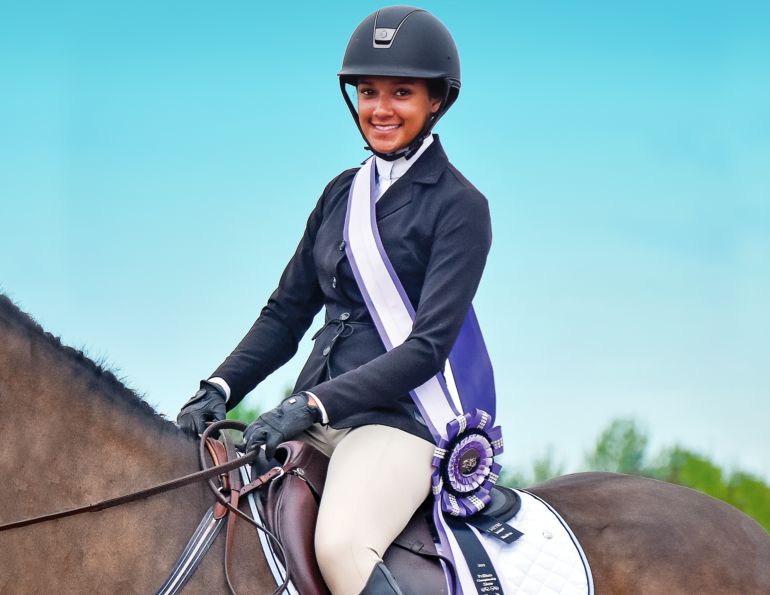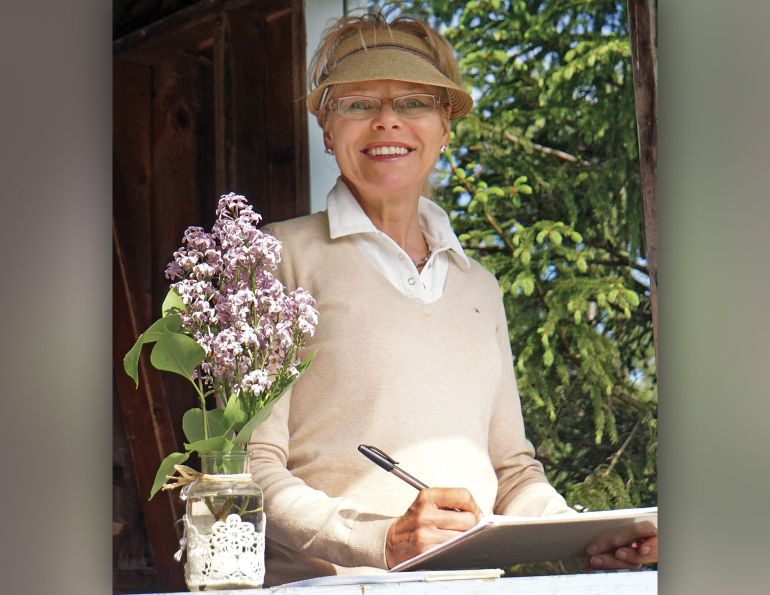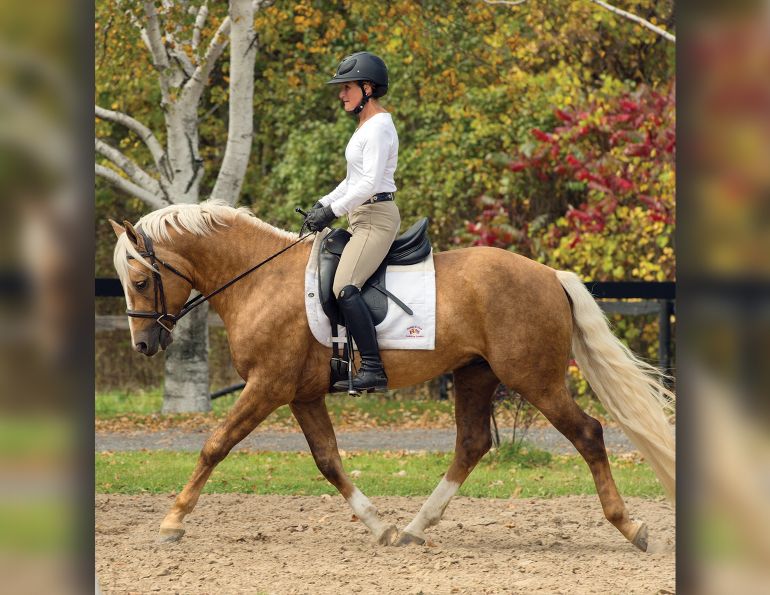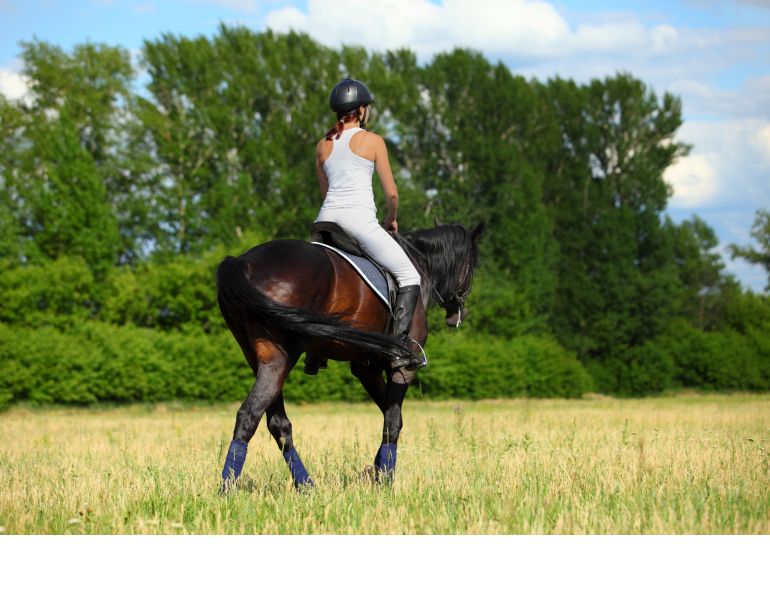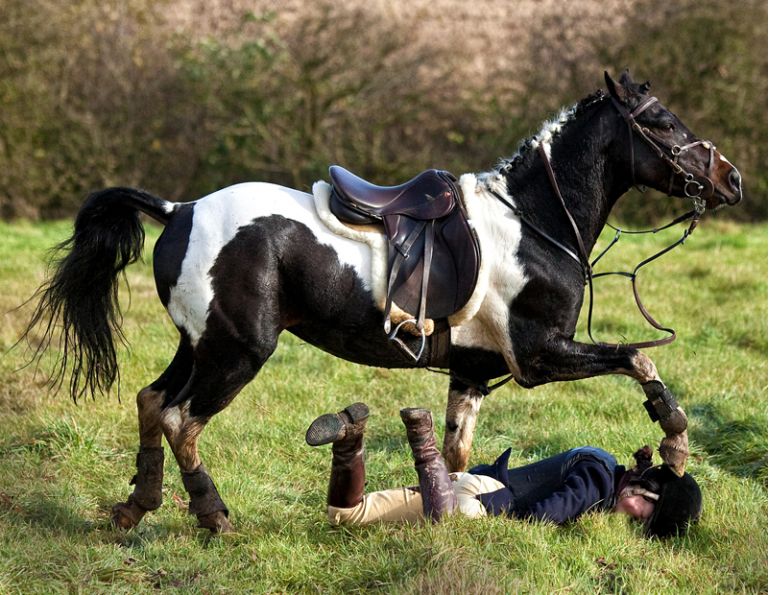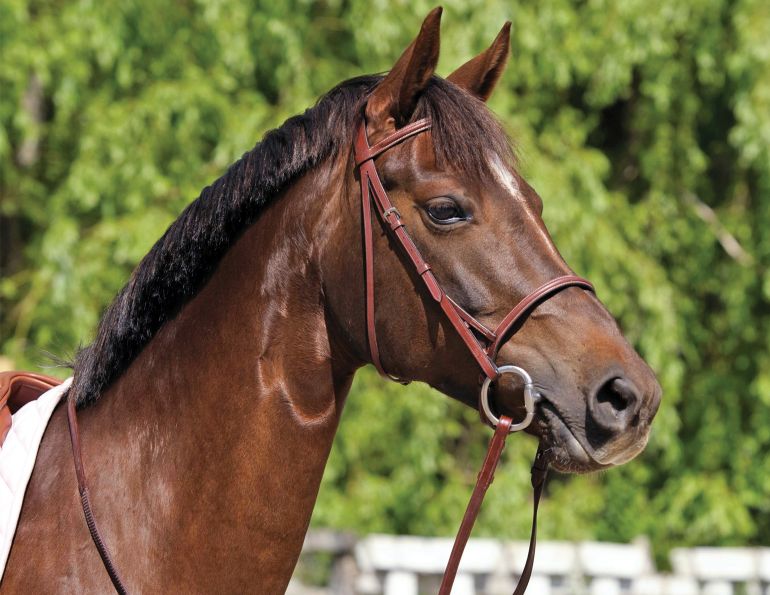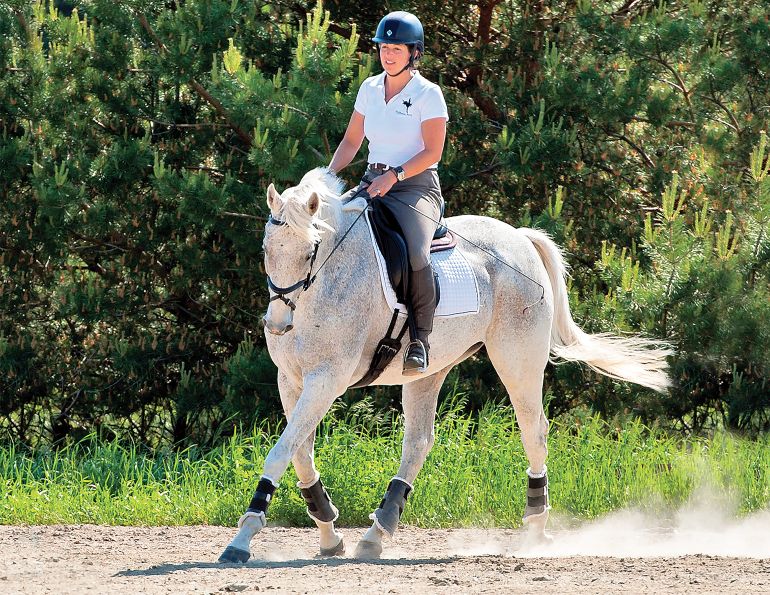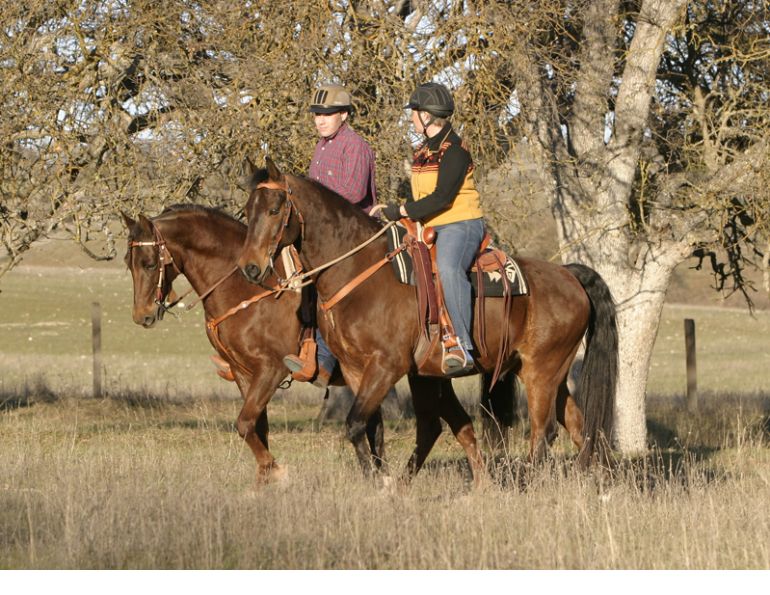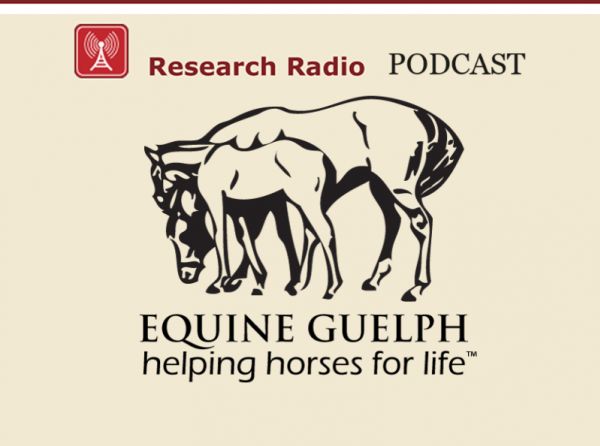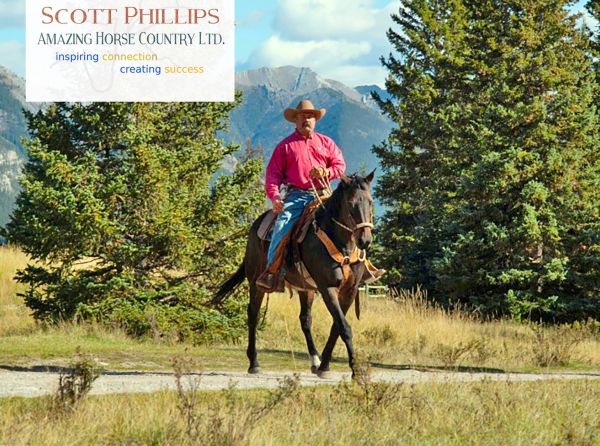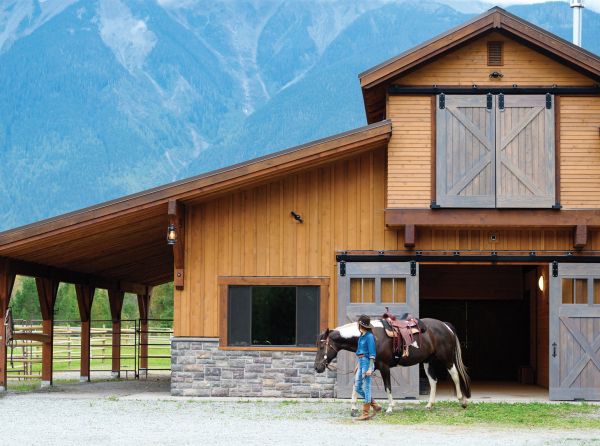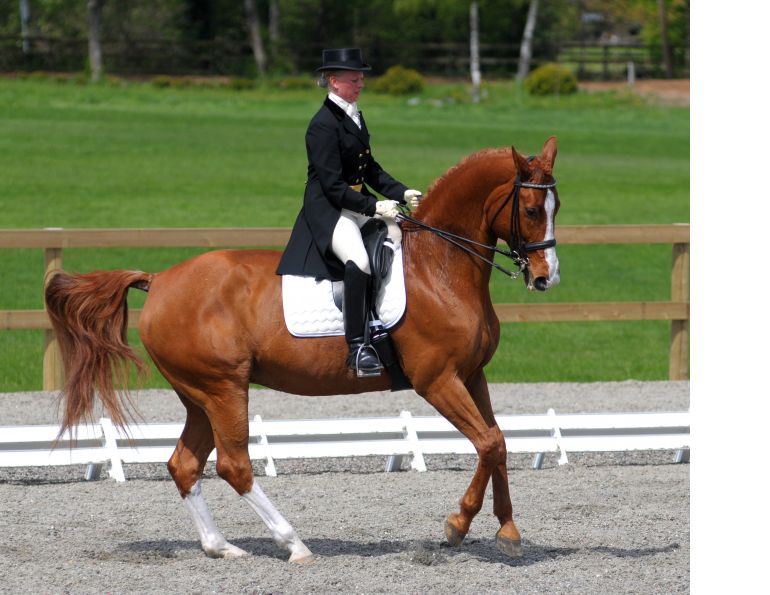By Tania Millen, BSc, MJ
Youth riders are the future of Canada’s equestrian teams, but not every horse sport has dedicated programs to bring along competitive riders aged 12 to 30. Equestrian Canada’s (EC) Long-Term Equestrian Development document provides a road map for athlete development — from those new to horseback riding to riders competing on Canada’s senior teams. Yet, there’s no one-stop-shop that describes pathways and programs for youth in different horse sports. Every sport has unique divisions and opportunities to advance, but some lack systematic activities that encourage advancement. Regardless, many riders who have represented Canada internationally have honed their skills through the youth programs and competitions that are available. Here’s a brief summary of programs available for Canadian youth riders, along with insight from those involved.
Show Jumping
For youths keen to develop a show jumping career or ride on Canada’s senior teams, working their way up through the youth divisions is paramount.
Youth show jumping classes are organized by the International Equestrian Federation (FEI) and divided by age and height. Divisions include children (ages 12 to 14) jumping 1.25 metres, pre-junior (14 to 16) jumping 1.3 metres, junior (14 to 18) jumping 1.4 metres, young riders (16 to 21) jumping 1.5 metres, and under 25 (U25) jumping up to 1.45 metres.
Dayton Gorsline is EC’s Show Jumping Youth Development Program coordinator and helps select riders for Canada’s youth show jumping teams.
“There’s a big difference between being on a team and riding as an individual,” Gorsline says. “We don’t have much depth at the senior level, so the young rider experience is invaluable. It allows the younger riders to step up.”
Many young show jumpers aim for the annual FEI North American Youth Championships (NAYC) which attracts junior and young riders aged 14 to 21 years from Canada, the USA, Mexico, and Central American countries such as Panama, Guatemala, Honduras, and Costa Rica. Competitors vie for team and individual medals in the FEI disciplines of dressage, eventing, and show jumping. It’s the first international team event that many youth riders experience and has launched the careers of Olympic medalists.

In 2022, Canada’s children’s division show jumping team won gold at NAYC and Canada’s William Martin won junior individual gold. Canada’s young rider team of Sam Walker, Lauren Esdale, Eric Krawitt, and Sara Tindale won the bronze medal. Photo: Cealy Tetley
In 2022 in show jumping, Canada’s children’s division team won gold at NAYC and Canada’s William Martin won junior individual gold. Canada’s young rider team of Sam Walker, Lauren Esdale, Eric Krawitt, and Sara Tindale won the bronze medal.
“It’s rare in show jumping to gain a lot of team experience as a young rider,” says 20-year-old Sara Tindale. “The NAYC are unique because they give young riders the opportunity to experience a championship format that’s like the senior championships. Championships require a certain level of fitness of both horse and rider, strong mental focus, and the ability to stay calm and ride well under pressure. That’s definitely something I had to learn.”

As a member of Canada’s Senior Nations’ Cup team at the CSIO4*-W in Rabat, Morocco, Sara Tindale riding Elco van hof ter Naillen was Canada’s only rider with double clear rounds and one of only two riders in the whole competition with double clears. Photo: Stefano Grasso for RMT
Following NAYC 2022, Gorsline and the young rider team flew to the Netherlands for the FEI Nations Cup Youth Finals — a first for Canada. There, the team won the Challenge Cup.
In October 2022, Tindale debuted on Canada’s Senior Nations’ Cup team at the CSIO4*-W in Rabat, Morocco. She was Canada’s only rider with double clear rounds and one of only two riders in the whole competition with double clears.
“Jumping on Canada’s youth teams was a very important stepping stone,” says Tindale. “I felt ready to deliver when I made my senior team debut.”
“I don’t think they could have put Tindale straight onto a senior team without [her NAYC team] experiences,” says Gorsline.
It’s clear that Canada’s youth show jumping program is delivering results, but other horse sports don’t appear to have such well-organized programs.

Dayton Gorsline of Okotoks, AB, the Equestrian Canada Jumping Youth Development Program Advisor, believes the young rider experience is essential to move up. Photo: Cealy Tetley
Related: Teaching Children to Ride
Dressage
There isn’t a nation-wide program for competitive youth dressage riders in Canada. However, EC, Rising Stars Youth Dressage (RSD), Canadian Dressage Owners and Riders Association (CADORA Inc.), plus other regional organizations support Canadian youth dressage riders in different ways. Also, like show jumping, the FEI sanctions dressage divisions for ponies (ages 12 to 16), children (12 to 14), juniors (14 to 18), and young riders (16 to 21) which are offered at some Canadian shows. The NAYC for dressage usually run concurrently with the show jumping championships.
Camille Carier Bergeron is a 22-year-old Canadian Grand Prix rider who developed her skills through the FEI youth divisions.
“I started in the FEI pony division when I was 12 years old,” Bergeron says. At age 14 she competed in junior classes, then upgraded to the young rider division at age 16 while continuing to compete in the pony division. Now competing in Under 25 (U25) classes, Bergeron says, “The FEI program is really well organized. Every level prepares you for the next level.”

Canadian grand prix dressage rider Camille Carier Bergeron started riding in the FEI pony division when she was 12 years of age, and now competes in the Under 25 classes. Photo: Cealy Tetley
“FEI classes are international and your results are put on the FEI database,” she says. “Every month they provide a world ranking so even if you’re only competing in Canada or the USA you can compare yourself to riders around the world.”
Competing in FEI young rider classes qualified Bergeron for the NAYC but she’s since moved up to the U25 division. Meanwhile, Canada’s youth continue to pursue excellence at NAYC, which can be a stepping stone to Canada’s senior dressage teams. In 2022, Canada’s junior dressage team won the silver medal at NAYC.
The RSD equitation program helps youth dressage riders develop their skills regardless of whether they aspire to international competition.
“Kids at every level want to be improving,” says Sue Holtby, co-chair of RSD. “Not everybody is going to make it to the pointy end of the pyramid, but that doesn’t mean they don’t have value in the industry.”
The RSD program provides a separate dressage test sheet to judge equitation while the youths ride a standard dressage test. The program is now available nationwide and is endorsed by EC.
Eventing
Canada doesn’t have a nation-wide three-day eventing youth program. However, provincial programs for riders under age 25 are offered by Canadian Horse Trials Association - Quebec, Ontario Eventing Association, Alberta Horse Trials Association, and British Columbia (BC) Eventing Association. They focus on rider education, training, sportsmanship, and safety and are considered pathways to high-performance, including the NAYC.

A youth funding program provides funds and coaching assistance to three-day eventing riders competing at specific events in Canada and the USA. Photo: Dreamstime/Anke Van Wyk
Like the show jumpers and dressage riders, youth eventers who have Canadian team aspirations focus on competing at the North American championships. In 2022, Canada’s CCIYR2*L team of young riders won the silver medal at the USEF Young Rider Eventing Championships (which stood in for the NAYC) while Quebec’s Cassandre Leblanc won individual bronze.
Select youth riders are also assisted by the MARS Rising U25 grant program, which offers funding and coaching assistance to those competing at specific Canadian and American events.
Related: A Good-Minded Horse
Ontario Equestrian GRIT Program
Ontario Equestrian offers a high-performance program called GRIT (Great Rider Intensive Training) to select Ontario riders aged 13 to 30 who compete in dressage, show jumping, and eventing. The purpose of the program is to support podium-bound athletes. GRIT is led by Christilot Boylen, who competed for Canada in six Olympic Games, and includes training camps and sport-specific training with the Canadian Sport Institute of Ontario. In 2022, the program supported 14 riders across three disciplines.

Six-time Olympian Christilot Boylen leads the Ontario Equestrian GRIT high-performance program to select podium-bound ON riders aged 13 – 30 in the disciplines of dressage, show jumping, and eventing. Photo: Clix Photography
Vaulting
Vault Canada organizes the FEI sport of vaulting in Canada along with regionals clubs in BC, Alberta, Saskatchewan, and Ontario. Due to the demands of the sport, vaulting programs are tailored towards children and youth so it’s more common for those under age 18 to organically proceed through the competition levels and available programs.
“You can start vaulting at any age,” says 18-year-old Averill Saunders, who has been vaulting for 10 years and competed at the 2022 World Championships for seniors. “But you won’t compete at FEI recognized shows until you’ve been vaulting for three or four years.”
There are 17 levels for vaulters in Canada. Those include divisions for children (ages 12 to 14), juniors (14 to 18), youths (16 to 21), and seniors (18 and over).

Averill Saunders of Sundre, Alberta performing at the FEI Vaulting World Championships for Juniors in 2021, and for Seniors in 2022. Although not available nationwide, there are 17 levels for vaulters in Canada, and athletes can start at any age. Photo: Les Garennes
As vaulting develops worldwide, the first FEI World Junior and Young Vaulters Championships will be held in 2023.
“Canada has 20 athletes trying out for the championship in both youth and junior categories,” says Saunders. “We’ve never had that many athletes trying out before. It shows a lot of development and growth in the sport.”
A new development program is supporting those vaulters by providing them with world class coaching and sports psychologists. Therefore, although vaulting isn’t available countrywide, pockets of programming and support can provide paths to senior success.
Endurance
Endurance is another sport without nationwide youth programming. However, riders can get involved in the sport through the Endurance Riders Association of BC, Endurance Riders of Alberta, Saskatchewan Long Riders, Distance Riders Manitoba, Ontario Competitive Trail Riding Association, Endurance Cheval Quebec, and Atlantic Canada Trail Riding Association.
“We’ve been working with EC to create a coaching program to help get youth and adults involved in the sport,” says Dessia Miller, chair of the EC Endurance Committee and an FEI endurance rider herself.

Endurance is another discipline without a nationwide youth programming, but several associations across Canada help riders become involved in the discipline. A challenge of involving youth arises because the sport involves riding long distances alone, and accordingly, riders under age 18 must be accompanied by an adult during competition. Photo: Saskatchewan Long Riders Facebook
One of the challenges of involving youth is that the sport involves riding long distances alone. As a result, riders under age 18 must be sponsored by an adult during competition. The adult “sponsor” competes alongside the youth rider while supporting the youth along the trail. Therefore, youth generally become involved in endurance by riding at a stable where others are already involved in the sport.
FEI competitions have a junior/young rider division which includes juniors (age 14 to 16) and young riders (age 16 to 21). Depending on the year, there are FEI North American, Pan-American, European, and/or World Championships for juniors and young riders. In 2023, Chile is hosting the Pan American Endurance Championship for seniors and juniors/young riders.
Related: How to Find the Money for Horse Sports
Rodeo
EC and the FEI are not involved with rodeo. Instead, many of Canada’s successful senior rodeo athletes have honed their skills on the high school and college rodeo circuits in Canada and the USA. Canada’s high school rodeos are affiliated with the American-based National High School Rodeo Association (NHSRA) and organized by provincial groups in BC, Alberta, Saskatchewan, Manitoba, and Ontario. Additionally, the Canadian College Rodeo Association hosts rodeos in Western Canada for teams of college and university students.
“If someone wants to pursue a professional rodeo career, high school rodeo is a great way to start,” says Halle Gaudry, the 16-year-old 2022 Rodeo Queen for Saskatchewan High School Rodeo Association.
High school rodeo has two divisions. The junior division is for students in grades five through eight, while students in grades nine through twelve compete as seniors. Events include bareback riding, saddle bronc, steer riding, bull riding, chute dogging, barrel racing, pole bending, tie down roping, breakaway roping, goat tying, team roping, reined cow horse, cutting, and the Queen contest. Boys and girls compete together in some events while other events are only for girls or boys.

Above/below: Halle Gaudry, the 2022 Rodeo Queen for Saskatchewan High School Rodeo Association, believes high school rodeo provides a solid foundation for those aspiring to a career in professional rodeo. Photos: Kimberly Quam Photography

Halle Gaudry, the 2022 Rodeo Queen for Saskatchewan High School Rodeo Association, believes high school rodeo provides a solid foundation for those aspiring to a career in professional rodeo. Photos: Kimberly Quam Photography
Depending on the province, the high school rodeo season runs from August to October, then again from March through June. The Canadian championships are held in August while the NHSRA championships are held in July.
“After moving up through the high school ranks, it’s easier to go on [to college or professional rodeos], because you’re so experienced,” says Gaudry.
High school rodeo participants in Canada and the USA are eligible for significant post-secondary education scholarships, too.
“Quite a few kids from Saskatchewan are currently on full scholarships at college or university in the United States, including my sister,” says Gaudry. “So, I think there are lots of opportunities for youths that compete in high school rodeo.”
Program Shortage?
Show jumping, dressage, eventing, vaulting, endurance, and rodeo are the most visible horse sports that Canadian youth compete in. For better or worse, they all offer some sort of support for youth athletes, albeit most lack specific pathways to senior level success. However, youth also compete in para-dressage, reining, Western events, driving, competitive trail, working equitation, and more. Unfortunately, none of these sports appear to have programs that systematically assist youth in advancing up the levels.
For youth with high-performance aspirations, finding paths to international success can be tough. Across the country there are pockets of experts in different sports, but finding the right people and support systems at the right time can be challenging.
Related: Pony Club - Incubating Canada's High Performance Riders
For more information about equestrian programs for youth, contact sport-specific organizations or those below.
- CADORA Inc.
- Canadian College Rodeo Association
- Endurance in Canada Facebook group
- Equestrian Canada
- International Equestrian Federation
- National High School Rodeo Association
- North American Youth Championships – dressage, show jumping, eventing
- Ontario Equestrian Great Rider Intensive Training
- Rising Stars Youth Dressage
- VaultCanada
Related: 21st Century Rider - Majority of Horse Owners are Adults
Main Photo: Sara Tindale riding Elco van hof ter Naillen at the Morocco Royal Tour in October, 2022. Credit: Stefano Grasso for RMT






